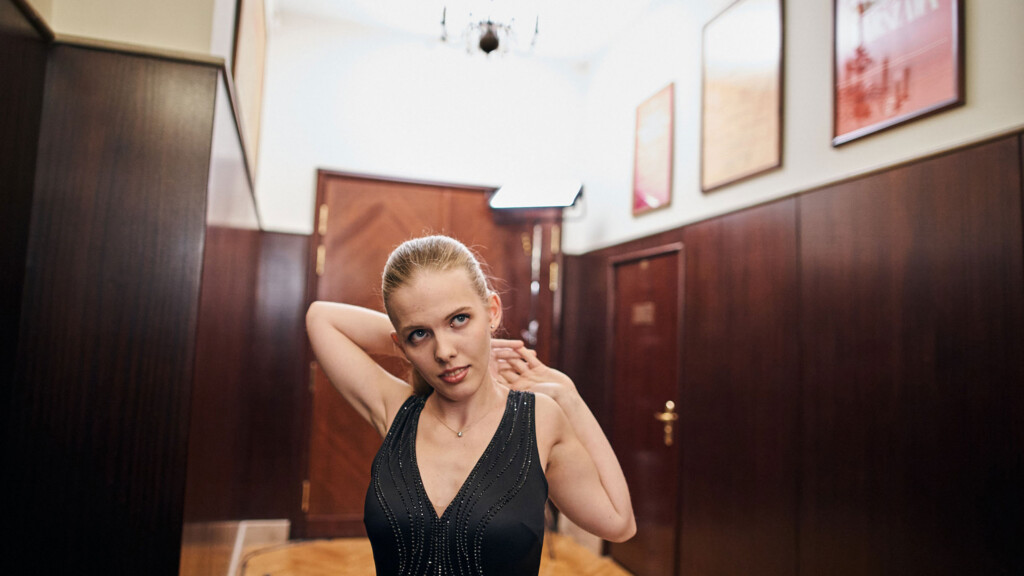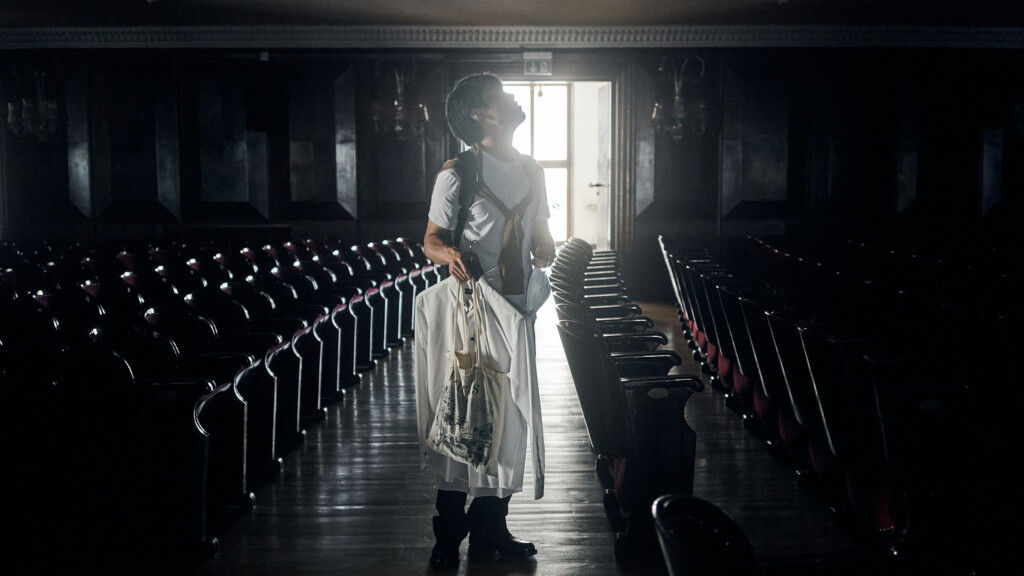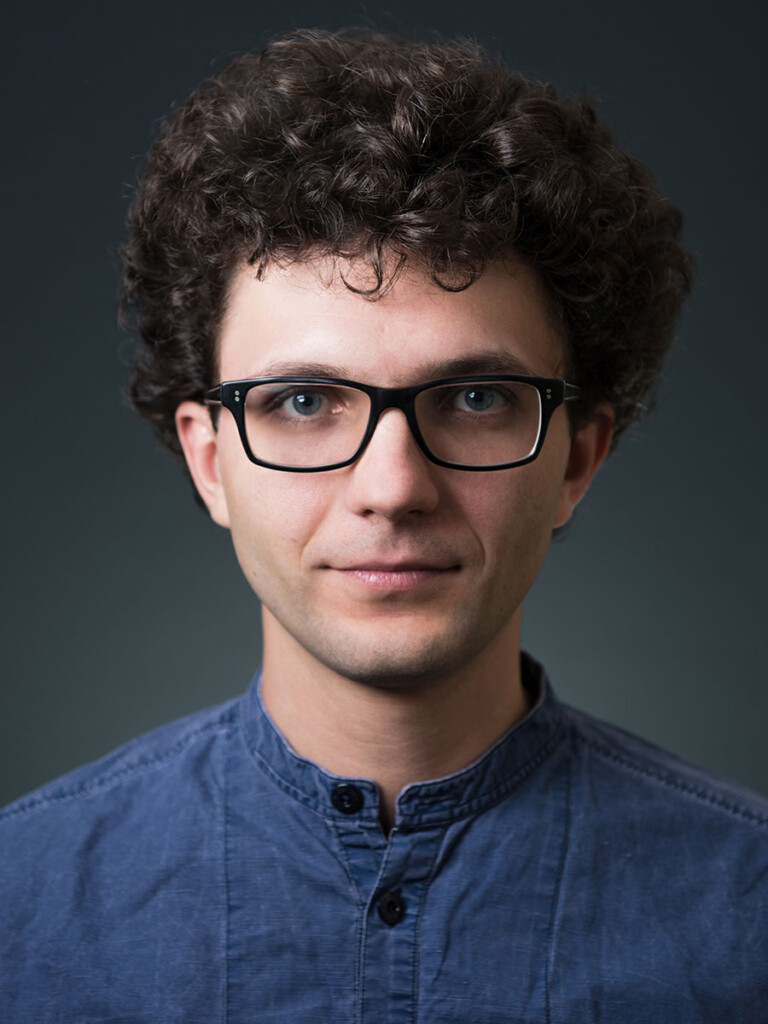Pianoforte, the documentary directed by Jakub Piątek about the International Chopin Piano Competition in Warsaw, is a marvelous backstage look at the young pianists that builds nicely to a riveting climax, where twelve musicians compete in the finals. For an individual who has had no formal music training and connected later in life with classical music, Piątek gets everything right in Pianoforte, on a standard of musical credibility. It is on Sundance’s World Cinema Documentary slate.
In an interview with The Utah Review. Piątek, whose last Sundance film was the narrative feature Prime Time that premiered two years ago, he wanted to dive into the inner sanctum of the competition and how the pianists prepare for it. “When we edited the film, we wanted to capture that backstage feel and the sense of the sound you might hear from someone in a practice room and then build up to the end when the finalists are performing a Chopin concerto with the orchestra.” He was inspired to use this approach after watching a short documentary from more than 60 years ago, The Musicians by Kazimierz Karabasz. One scene in that film highlighted a rehearsal of a brass band comprising tram drivers.

The Pianoforte scene of that final round is superbly edited. Piątek seamlessly splices together segments of the music from the various finalists, while the scene jumps to capturing the reactions of audience members, some of whom are moved to tears by various performances.
Some 500 pianists from around the world submit applications to enter the competition, which occurs every five years. The starting field of 160 pianists eventually is whittled down to 12 in the final round with one winner and five runners-up.
Piątek went through the list and conducted some 50 online conversations with pianists to determine who might be good subjects for the documentary. He attended the preliminary rounds which were held several months before the major competition and then selected the subjects. Relying instead on his instincts as a documentarian rather than as someone picking through the rankings of pianists, he calculated the odds that 1.5 subjects would end up in the final round.

The outcome significantly exceeded that estimate. Among the pianists who were the main subjects in the film who made it into the finals: Alex Gadjiev (who tied for second), Leonora Armellini (who finished fifth) and Eva Gevorgyan, Hyuk Lee and Hao Rao (who competed in the finals). Bruce Liu from Canada won the competition, which was held in 2021. Incidentally, two of the film’s subjects have competed at the Gina Bachauer International Piano Competition in Salt Lake City, Gadjiev made it to the semifinals in 2014 and Hao won the bronze medal in 2021, a few months before he competed in Warsaw.
Piątek excels at presenting humanizing portraits of the young musicians and their teachers. Picking up on a point that Gadjiev made, Piątek says that many are tempted to see these musicians as magicians or as supernova stars whose talents come from mysterious sources. And, he shows how the musicians do not live solely by the sound of their instrument.

Indeed, many make sacrifices that take various forms and some have found their own ways of managing the pressures of a world-class pianist in a competition of such enormous stakes. Gadjiev, who comes from Italy and Slovenia, uses yoga and meditation and appears to be the most mature and sanguine in handling the attention and stress. Armellini is vivacious and gregarious.
Among those who are featured in the film but who do not make it to the finals is Marcin Wieczorek, who enjoys video games as his diversion. The young pianist exudes confidence in public but then just barely ten minutes before he is set to be the final performer in the second round of the competition, he suddenly decides to resign. Piątek captures the emotional impact of Wieczorek’s decision. “He had been listening to Bruce Liu’s [the eventual first prize winner] performance of a Chopin polonaise and even before Liu was done, Marcin made the decision, in front of our cameras which were rolling,” the director recalls. Incidentally, as the credits appeared at the end of the screening, a title card indicated that Wieczorek hopes to open a private music school.

Pianoforte also showcases the different approaches the teachers and professors use with the young artists. Gevorgyan’s teacher scrutinizes every fine detail of her performance, right down to the angle and position of her hands. Nevertheless, the obsession with technical perfection does not take away from Gevorgyan’s impressive performance. The relationship between Hao and his teacher is particularly interesting to observe. There are several scenes shot at the home of Hao’s parents in China. The mother keeps a thick notebook of concert tickets they have attended. They would travel more than 26 hours by train to Wuhan, where Hao had his piano lessons. Hao’s teacher is effervescent in her optimism, as he progresses through each competition round. He may be among the youngest competitors but he truly proves his artistic mettle.
“During the research for the film, I instantly discovered that in music their relationship with their teacher is the most important one for the student, far more than their relationship with their parents,” Piątek explains. “For Eva and her teacher, the relationship is like fire and water. But I also learned that every artist requires a different form of guidance.”

As for Chopin, a composer and pianist who is considered among Poland’s greatest figures and heros, Piątek’s film is infused with the unique worship reserved for the name attached to the competition. “Being raised in Poland, you realize how much Chopin is in your veins,” he says. “When you land in Warsaw, it is at Chopin airport. When you take a train from Warsaw to Krakow at the end of the line, it is Chopin’s music playing.”
As Piątek explains, Poland is a fierce football (soccer) nation but every five years, when the Chopin competition is held, the country — regardless of anyone’s connection or familiarity to classical music — turns its attention to the event. “At least one out of every three people in the country will see or listen to a recital or concert during the competition,” he says. “If you’re in a cab, the driver will be discussing it. It really is a beautiful thing.”
Americans, take note: every concert during the competition is free admission. Television and radio cover it live. When the final results were announced in the middle of the night, some 120,000 people were online to hear news about the winner. When asked about his favorite Chopin pieces, Piątek mentioned the composer’s Preludes and his second piano concerto.
For more information about festival screenings and tickets, see the Sundance website.
